3, June 2020
Cameroon records highest number of Covid-19 deaths in central Africa 0
Cameroon has recorded the highest number of Covid-19 related deaths in the past 24 hours compared to other central African countries, the Africa Centres for Disease Control and Prevention (Africa CDC) said on Monday.
Cameroon recorded 197 deaths, the DRC 72, Chad 65, the Republic of the Congo 20, Gabon 17, Equatorial Guinea 12, while Sao Tome and Principe each recorded 12.
At least 5,564 more people in Africa tested positive for the coronavirus over the past 24 hours, according to the health agency of the African Union.
The total number of infections on the continent reached 147,099, said the organisation, with the death toll currently standing at 4,228.
The total number of recoveries climbed to 61,808 as 2,596 patients recovered over the past 24 hours.
North Africa recorded a total of 43,900 Covid-19 cases; west Africa 35,100, southern Africa 34,900, East Africa 17,000 and Central Africa 16,100.
In terms of the death toll, North Africa had 1,900 fatalities, west Africa 717, southern Africa 707, east Africa 513 and Central Africa 398.
The worst-hit country in terms of number of infections was South Africa, currently sitting on 32,700 cases. Egypt follows with 25,000.
In terms of Covid-19-related deaths, Egypt recorded 959 cases and South Africa 683.
In West Africa, Nigeria registered 287 deaths, Mali 77, Niger 64, Burkina Faso 53, Sierra Leone 46, Senegal 42, Ghana 36, Cote d’Ivoire 33, Liberia 27, Guinea 23 and Togo 13.
In East Africa, Sudan had recorded 286 fatalities, Somalia 78, Kenya 64, Djibouti 24, Tanzania 21, Ethiopia 11 and South Sudan and Mauritius 10 each.
In Central Africa, Cameroon reported 197 deaths, the DRC 72, Chad 65, and Republic of the Congo 20; Gabon reported 17 fatalities, Equatorial Guinea 12, while Sao Tome and Principe also reported 12 each.
Since the virus emerged last December in the Chinese city of Wuhan, it has spread to at least 188 countries and regions.
African News Agency (ANA)
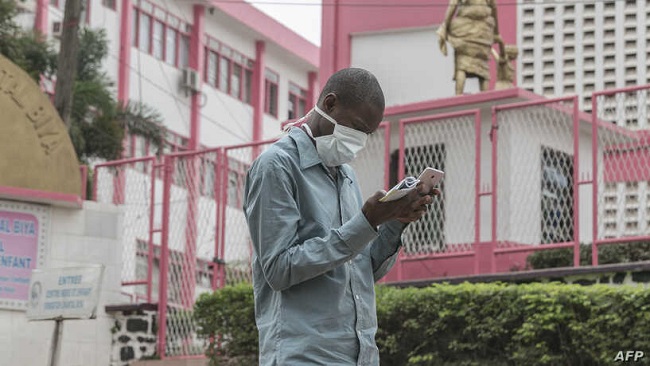




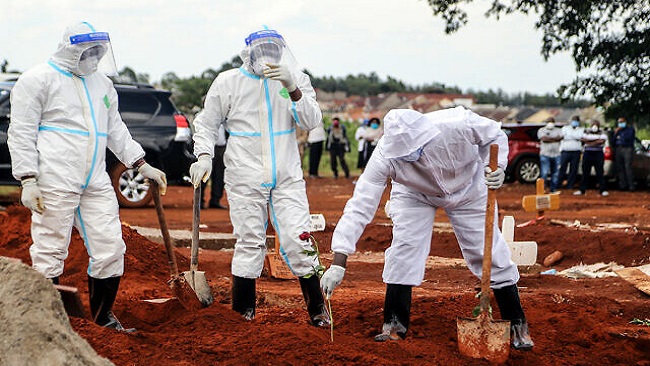
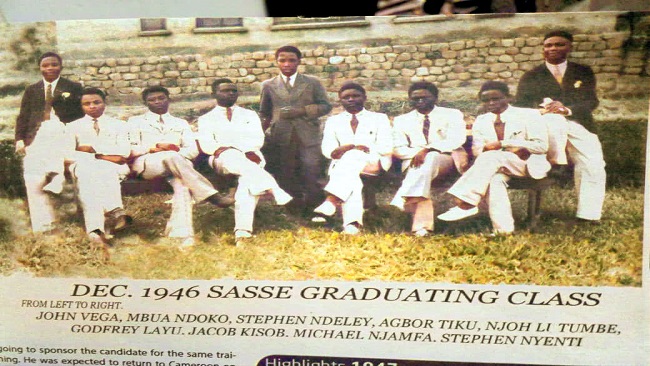

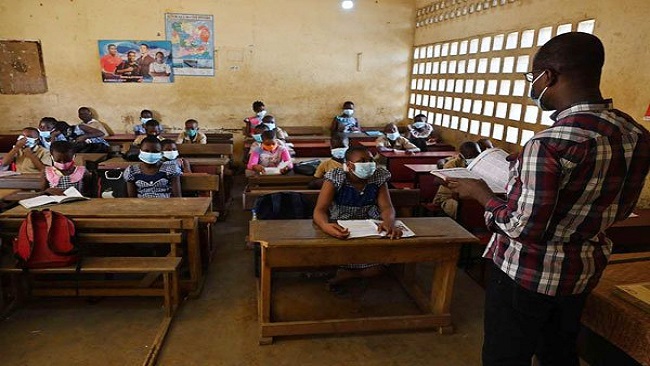
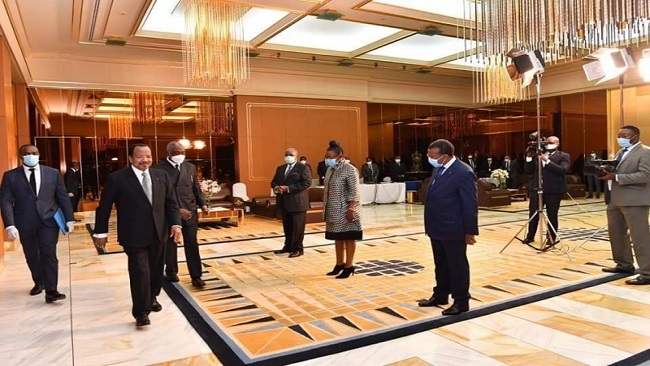
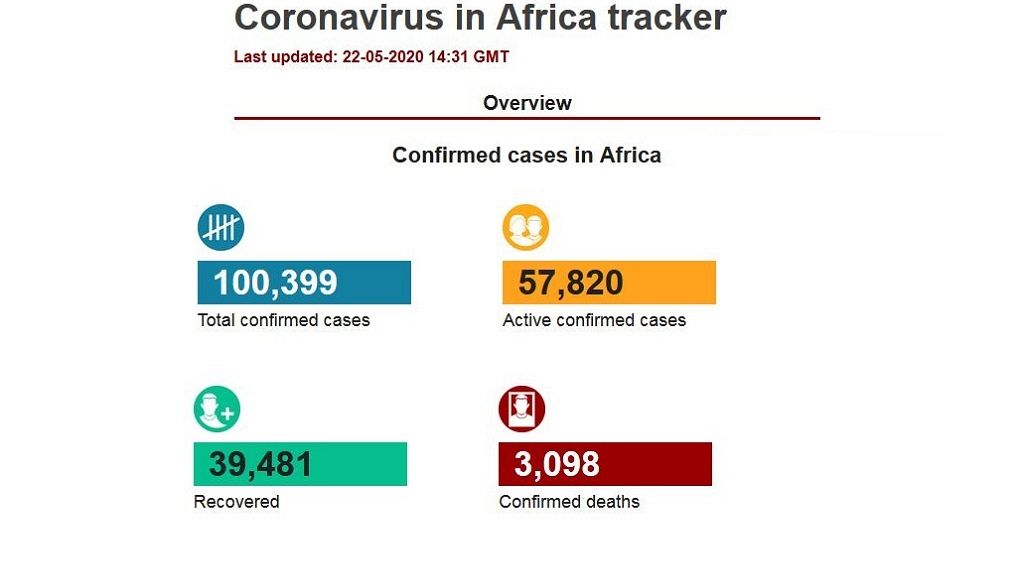


















6, June 2020
Cameroon Patients Flee Hospital as COVID-19 Cases Increase 0
Cameroon says hundreds of hospital patients have fled health facilities after a jump in cases of COVID-19, the disease caused by the coronavirus.
Cameroon has about 7,400 confirmed cases and more than 205 deaths from COVID-19, according to Johns Hopkins University. Patients say they are afraid of catching the coronavirus at hospitals, but health officials warn that not getting needed treatments for other health issues can put them at higher risk.
The highest number of patients who have fled hospitals are in the western towns of Bamenda and Bafoussam; the capital, Yaounde; and the economic capital of Douala, where confirmed cases of COVID-19 are increasing daily, said Health Minister Manaouda Malachie.
Each time a special ward for COVID-19 patients is created in a hospital, Manaouda said, Cameroonians worry that if they go to that hospital, they will contract the illness. He stressed that hospital wards dedicated to COVID-19 patients are separated from wards caring for other patients. However, he added, President Paul Biya has instructed the government to build special care centers for COVID-19 cases.
About 600 patients have fled from health facilities, while thousands of others are avoiding hospitals for fear of becoming infected, according to Manaouda.
Thirty-one-year-old banker Wilfred Awemo said he decided to seek African traditional treatment for his malaria because he no longer trusts hospitals in Cameroon.
“When you go with a little illness like this, most especially when you have a health complication and then you are going for checkup, they will just take your temperature and if it goes above 37, they just say that you are a suspect and they try to quarantine you,” he said.
Authorities are putting all suspected coronavirus cases under quarantine. If a person tests negative, he or she is still kept under observation for 14 days.
Dr. Getrude Ashu, who is working with the public health ministry, said the government has sent out representatives to encourage people to visit hospitals and to stop going to traditional healers.
“We are trying to sensitize the population that it is not in all hospitals and that the probability of contracting COVID in the hospital is just the same as getting it in the marketplace or in the church or in the community,” Ashu said. “So, we just require them to protect themselves when they go to the hospitals and respect all the preventive measures. We will not have any problems.”
Since the first cases of COVID-19 were reported in Cameroon three months ago, government and health workers have been asking civilians to consider the situation as a serious health threat and refer suspected cases to hospitals.
The government says confirmed cases continue to rise because many people either do not believe the coronavirus exists, or refuse going to hospitals for treatment until their symptoms worsen.
Source: VOA